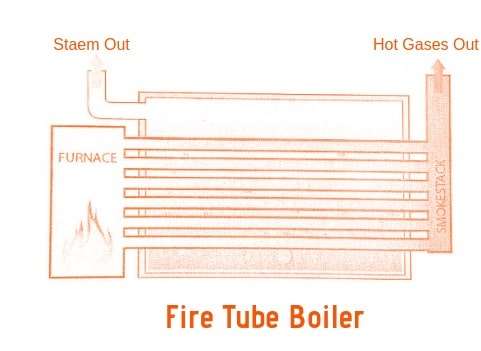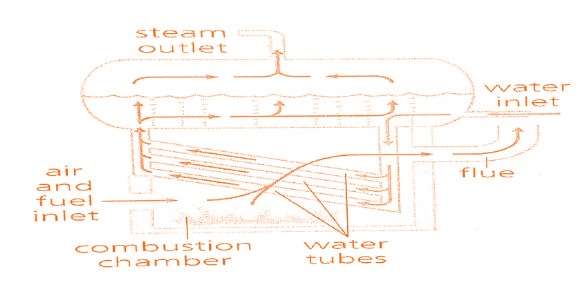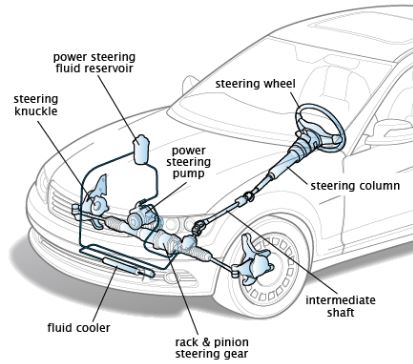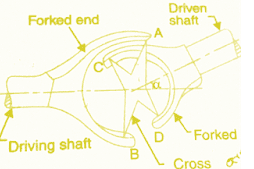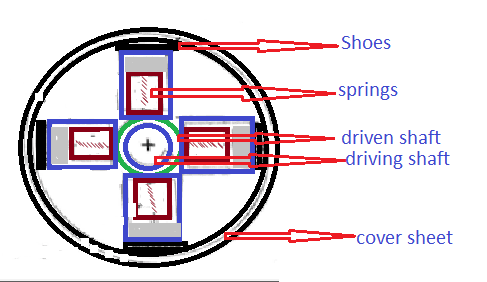Boiler- Working Principle and Types of boilers:
A Boiler is a closed vessel in which water is used to convert into steam with the help of high-temperature flue gases flowing from the furnace.
A boiler is a major component used to produce steam in the thermal power plant. Boilers are designed to observe the maximum amount of heat that is released from the combustion chamber.
There are two types of boilers Fire tube boiler and water tube boiler. according to usage, there are different types are in existence.
High-pressure boilers are used in the thermal power plant to work with more efficiency this boiler contains water tubes in it. According to the High-pressure boiler’s function, there is a difference in size. In these High-pressure boilers, the operating pressure is about 160 bars and the steam capacity is around 650 tonnes/hr. In High-pressure boilers, the water is heated beyond the critical pressure of steam which is done by mixing the hot steam with water.
In this boiler there are long tubes by this there is a chance of losses in pressure to recover this the arrangements of tubes in the boiler are parallel to each other.
Working principle of Boiler:
We can easily understand the basic principle of the boiler. The boiler is essentially a closed vessel, this contains with water to generate steam from it by using hot flue gases from the combustion chamber, Coal is used as fuel in a combustion chamber, When this coal is used to burn in furnace by this hot gases are produced, these hot gases are used to flow into the boilers tubes or space between tubes this is according to the type of boiler When these hot gases get in contact with water vessel the heat transfer takes place in between water and gases. By this steam is produced in it, this produced steam is passed to the turbine of the thermal power plant. and makes to rotate the turbine to the generator. this used to produce electricity for it.
In this, there are different types of boilers used for different types of production.
Steam boiler efficiency can be calculated by Heat exported by outlet steam to the Heat supplied by the fuel.
Different types of factors that considered in using a boiler:
The required amount of steam can be produced by the boiler in a given time.
Requirement amount of pressure that can create.
Space required from placing.
Installation Cost.
Ability to supply the Steam in a given period.
There are different types of principle designs in different types of boilers. Boilers efficiency is an important factor to be considered. There are some factors affecting the efficient design for boilers Pressure Vessel Design, Heating surface, Boiler pass number, Furnace, Steam, and water circulation.
There are a number of boilers at present but according to the factors, requirements they are applied.
Types of Boilers:
There are different types of boilers in existence but the general type of boiler is explained below which is a fire tube boiler and water tube boiler.
Fire Tube Boiler:
- In a fire tube boiler, hot gases are used to pass through these tubes. there are multiple tubes present in it. These tubes are in a closed vessel that contains water.
- These hot gases pass through tubes used to transfer the heat from gases to water to convert from water to steam. the generated steam is present in the same vessel of water which contains, by this the production of steam at high pressure is not possible.
- This is used to produce 9 metric tons of steam per hour.
Water Tube Boiler:
- This is just the opposite to fire tube boiler, in this water is used to flow from tubes, and hot gases are used to surround the tubes.
- These surrounded gases transfer the heat from gases to water vessels by this steam is produced in it. this produced steam is used to store on the top of the boiler.
- By this outlet, this steam is used for working purposes.
Please Subscribe! and Don’t forget to Follow us on Facebook, Twitter, Linkedin, Instagram and Google Plus.
